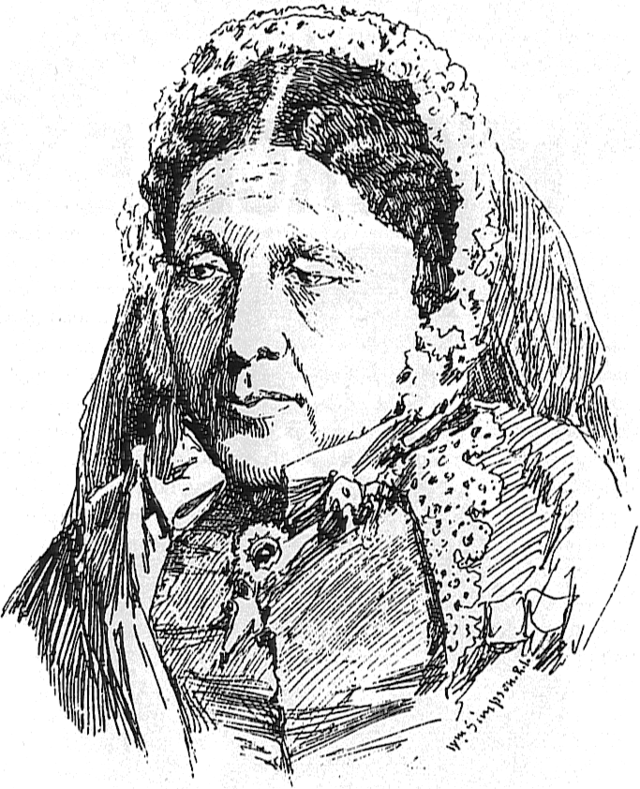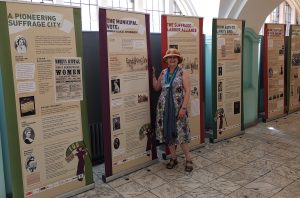Welcome
Welcome to The West of England and South Wales Women’s History Network. See below for news of our latest events.
The Network was set up to encourage research and interest in women’s and gender history both among academics and the wider community. We hold events, including an annual conference, workshops, film showings and visits to archives throughout the yearon zoom and in different venues around the region.
NEWS
West of England and South Wales Women’s History Network 31st Annual Conference
Women and Fashion: A Historical Perspective
Saturday 12 October 2024
Bath Royal Literary and Scientific Institution, 16-18 Queen Square, Bath BA1 2HN
Keynote Speaker: Dr Serena Dyer, Associate Professor of Fashion History & Material Culture, De Montford University
*******************************************************************
NEW BLUE PLAQUES FOR BRISTOL, SALISBURY AND EXETER
Hilda Cashmore
The unveiling of a blue plaque to Hilda Cashmore, the first warden of Bristol’s Barton Hill Settlement, took place at noon on International Women’s Day, Wednesday, 8th March 2023 at 12 noon Wellspring Settlement, 43 Ducie Road, Barton Hill, Bristol
After the unveiling, Helen Meller, author of the BRHG book Hilda Cashmore, and Anne Joslin, of the Wellspring Settlement (the successor settlement to Barton Hill), gave a talk on Hilda’s role in Bristol as well as in the settlement movement in both Manchester and India where Hilda Cashmore later worked. Refreshments will be available in the Wellspring café. Mrs
Frances Hale
In April a plaque was unveiled by Mayor Cllr Tom Corbin and Dr Jane Howells in New Street, Salisbury to honour Frances Hale who owned and ran a building firm which constructed and restored many Salisbury buildings; at its height 400 staff were employed. The plaque is on what is now the Cosy Club, but was built in 1871 by Hale for the Literary and Scientific Institution. The joint organisers were Salisbury Civic Society and Salisbury Soroptimists, whose project ‘Her Salisbury Story’ is contributing to increasing the recognition given to women in the city. The website https://hersalisburystory.com has to date collected the stories of over 60 women, past and present, who have impacted upon life in Salisbury. Some of these women featured in an exhibition at Salisbury Museum.
Mary Willcocks
On Friday 9 June – a very hot day! – Exeter Civic Society unveiled a blue plaque at 88 Pennsylvania Road, the home for over thirty years of Mary Willcocks, author, lecturer and feminist. We were pleased to welcome representatives of the WE & SW Women’s History Network committee to the event. Mary Willcocks (1869-1952), was a novelist and suffrage activist who spent most of her life in Exeter. She was born on a farm close to Dartmoor, which provided the background for many of her novels, featuring strong women characters, often set in rural Devon. She moved to Exeter in 1907 when her early novels proved suc abandoning teaching for life as a freelance writer and speaker. The publication of her seventh novel in 1913
prompted a feature in the Devonian Year Book with a portrait photograph showing her in her forties.
During her first ten years in Exeter she campaigned for Votes for Women, organising campaigns across Devon and Cornwall for the National Union of Suffrage Societies, including the 1913 Votes for Women march from Land’s End to Hyde Park. She retained an interest in political activism even after the vote was won, campaigning on opportunities for women. In 1943 she was awarded a Civil List pension for services to literature.
WE & SW WHN made a grant of £150 to Exeter Civic Society towards the cost of the plaque. Local city councillors also made a grant, as one of the criteria for the city’s small grants programme has been to increase the awareness of women’s place in Exeter’s past. The balance of the cost was met by Exeter Civic Society.
**************************************************************
West of England and South Wales Women’s History Network Blog
Our Blog is now live. Please visit it to read the latest entries. Contributions are very welcome if you have anything of interest to share with the network. See below for our Blogger feed,
**************************************************************
Workshops and Study Days
We hold regular workshops including work in progress so do get in touch if you have anything you would like to share with our members.
***********************************************************
Paper delivered at the West of England and South Wales Women’s History Network Annual Conference 3 October 2020, “Women and Transport: Historical Perspectives”
Lucienne Boyce Cheap and easy railway traffic”: Suffragettes and the Railways
***************************************************************
Look for sites in your area commemorating historical women
Carrie de Silva has launched a women street names project and needs our help. Further details here.
In response the WE&SW WHN have decided to expand the scope of this research to include other commemorative sites with links to historical women, particularly those in our region. This could include buildings such as schools or statues (though not churches) or other places of interest. It is hoped this will enable further discussion about who has been commemorated, by whom and how, as well as a consideration of those not represented. We will also submit the street name entries to Carrie for her project.
So, if you are out on a safe, social distanced, walk for exercise, please keep an eye open for historical women and email the information (with photo if appropriate) to Kath Holden at katherineuna.holden@nullgmail.com. We will publicise the results in due course.
Our first contribution is the famous British Jamaican nurse Mary Seacole who is commemorated in streets, nursing homes and hospital wards throughout Britain including Mary Seacole Court in St Werburghs, Bristol.

**************************************************************
The Votes for Women event at the MSHED was held on Sat 30th June 2018. Information about the exhibition and how you can borrow the banners for your institution can be accessed here

Pic: Dawn Dyer of Bristol Libraries with the Votes for Women 100 banners.
[Picture credit: Tim Browning]Credit
